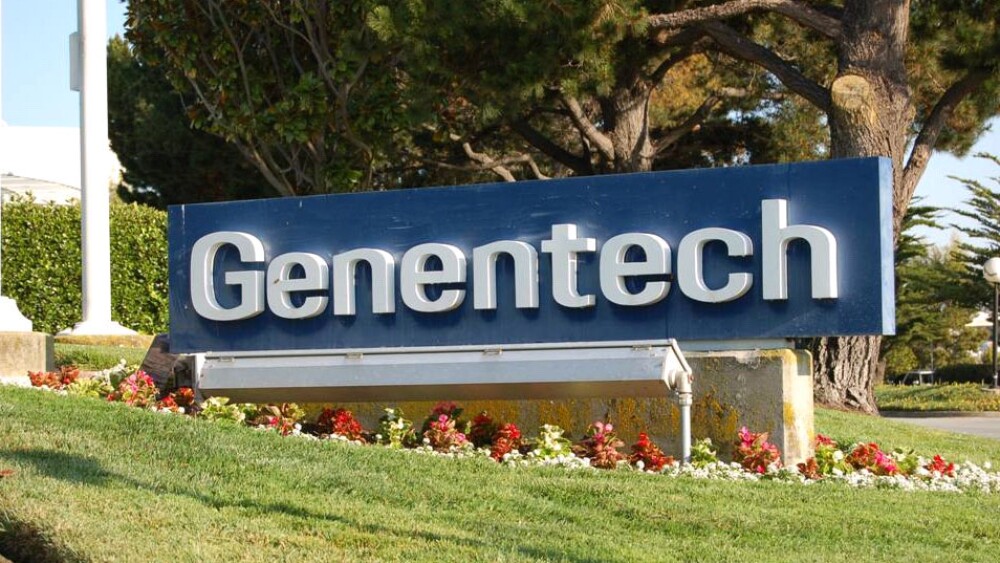April 17, 2017
By Alex Keown, BioSpace.com Breaking News Staff
SOUTH SAN FRANCISCO, Calif. – Genentech , a subsidiary of Roche , touted interim results from its Phase III HAVEN 2 trial testing emicizumab for the treatment of hemophilia A in children less than 12 years of age who have inhibitors to factor VIII.
This morning, the company announced that after 12 weeks of treatment with emicizumab, interim data showed a “clinically meaningful” reduction in the number of bleeds over time. The interim analysis after a median of 12 weeks of treatment included 19 children who require treatment with bypassing agents. The primary endpoint of the study is the number of bleeds over time with emicizumab prophylaxis in arm A versus no prophylaxis in arm B. The study will enroll a total of 60 children for its final analysis planned after 52 weeks of treatment with emicizumab, the company said this morning.
The findings are consistent with results from another Phase III study in adults and adolescents (12 years of age or older) with hemophilia A and inhibitors to factor VIII. In that trial, HAVEN 1, Genentech said emicizumab met primary and secondary endpoints. However, that trial did have some problems. In October 2016, it was reported that four patients taking part in the trial suffered serious adverse events. Roche disclosed two of the patients developed thromboembolic events and two patients developed thrombotic microangiopathy.
Emicizumab, also called ACE910, is a bispecific antibody engineered to bind both factors IXa and X, replacing the function of the missing factor VIII to improve clotting function and prevent spontaneous bleeding, according to Roche. Additionally, the therapy is designed to promote blood coagulation in hemophilia A patients, regardless of whether they have developed inhibitors to factor VIII, the company said. The drug is administered subcutaneously once per week. Emicizumab was created by Chugai Pharmaceutical Co., Ltd. and is being co-developed by Chugai, Roche and Genentech.
Sandra Horning, chief medical officer at Genentech, said in a statement that managing hemophilia A with inhibitors to factor VIII in children can be challenging “because bleeding is difficult to control and current treatments require frequent intravenous infusions.”
While Genentech was high on its announcement, John Carroll of Endpoints questioned how significant the phrase “clinically meaningful” actually was. In his report this morning, he said the phrase “statistically significant” is what people look for when determining whether or not the trial is a success or failure.
Hemophilia A is a genetic blood-clotting disorder that can lead to uncontrolled bleeding. There are about 20,000 people in the United States diagnosed with hemophilia and 320,000 worldwide Hemophilia A is the most common form. People with hemophilia A either lack or do not have enough of a clotting protein called factor VIII. The bleeding, which often occurs in joints, can cause significant pain and can lead to chronic swelling, deformity, reduced mobility and long-term joint damage.
The annual hemophilia market is about $11 billion and Genentech hopes its indications of emicizumab will secure a chunk of that market. Genentech’s Phase III interim data news puts emicizumab one step closer to battling out rival drugs FEIBA and NovoSeven, developed by and Novo Nordisk respectively, for a share of the market. Bioverativ , Biogen’s spinoff company for hemophilia, is also carving out its own niche with two approved drugs, Alprolix and Electate, which generated $500 million in revenue in 2015.
In addition to HAVEN 1 and 2, emicizumab is being evaluated in two more trials. In HAVEN 3, patients 12 years of age or older with hemophilia A without inhibitors to factor VIII are being dosed weekly or every other week with emicizumab. HAVEN 4 is evaluating emicizumab in patients 12 years of age or older with hemophilia A with or without inhibitors to factor VIII who are being dosed every four weeks.





